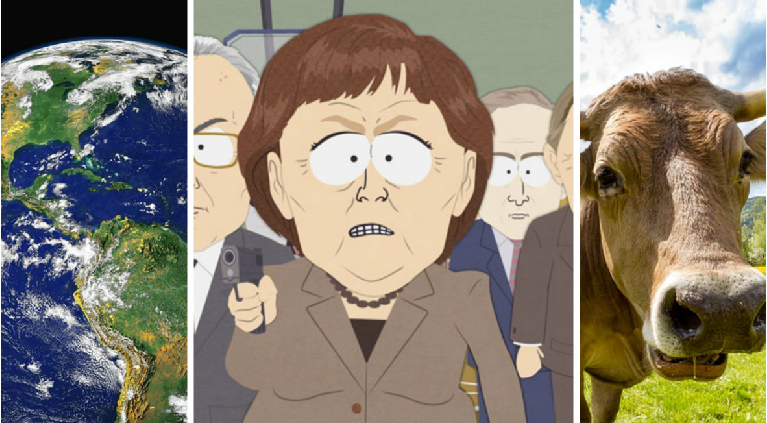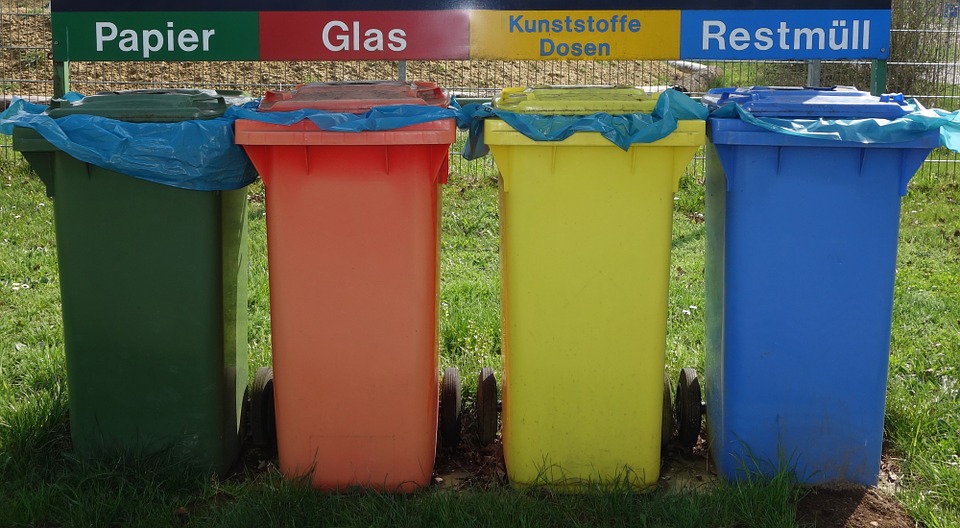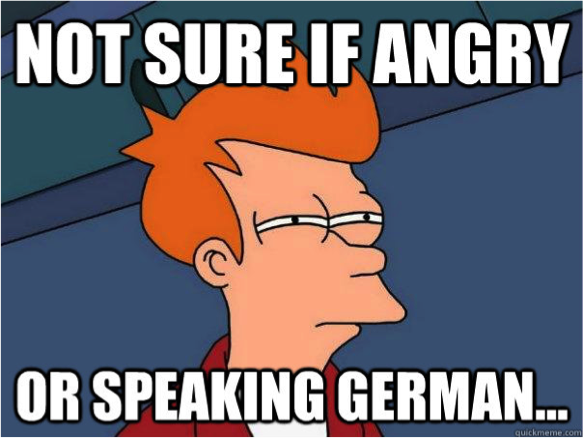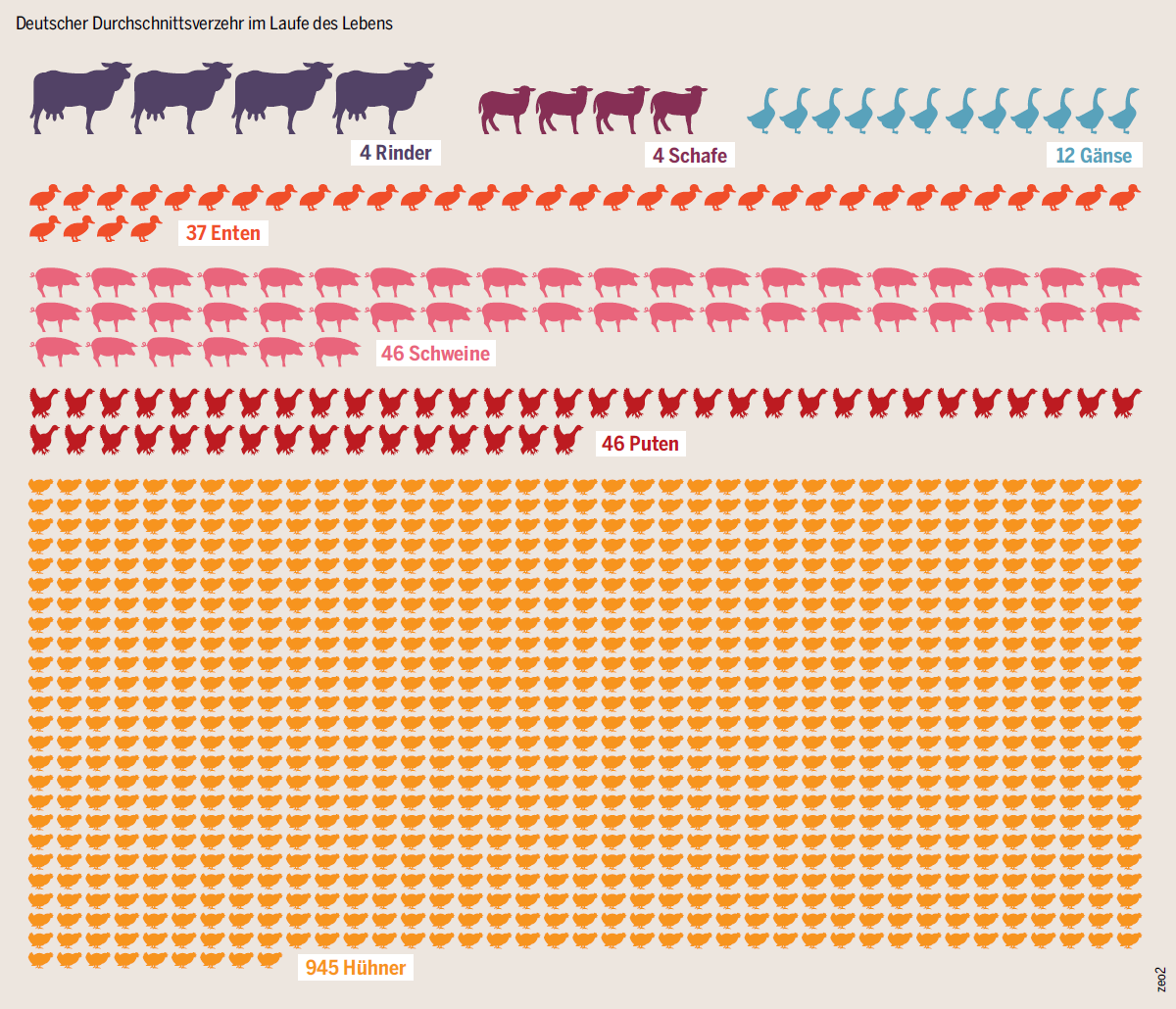
The German environmental minister’s meat ban is putting us at odds with ourselves
Germany’s environmental minister's move to ban meat from official functions has sparked a mini-identity crisis in the environmental consciousness of the nation.
As far as Western countries go, Germans do pretty well at being conscious of their carbon footprint. It’s so ingrained in how we’re raised that most of us learned to tell colors apart purely for fear of the fury of our next door neighbor spotting us putting plastic in the ‘general waste’ bin – "how many times do I have to tell you it’s the YELLOW ONE?!?!".

But last week, our environmental minister Barbara Hendricks made a move that brought two parts of our identities into conflict with each other, and we’re having a hard time adjusting. In the name of serving as a ‘role model’ for environmental protection, she's banned meat and fish from the menu for official events at the Environmental Ministry. That's right – it's seasonal, local, and most importantly, plant-based food from here on out.
...No Schnitzel? No Bratwurst?! No slice of ham with our cheese and rye??! “I’m not having any kind of Veggie Day instated through the back door,” Christian Schmidt, the agricultural minister for a conservative party in Germany, said to the press. “When it comes to nutrition I stand not for nanny-stateism and ideology but for diversity and freedom of choice.”

Alles ist kaputt. Or is it?
There are a few things we need to pick apart here before, depending on which side we’re on, we nod and shrug in agreement, or raise our fists for the rights of carnivores everywhere (or at least carnivores on the guest list of the German Environmental Ministry events which include dinner.)
Firstly, this move mainly just for show. A German publication (the name of which can be roughly translated to ‘Meatonomics’) was quick to cite an article pointing out that the 1200 employees of the ministry will continue to be served meat in their canteens. It’s little more than a glorified PR exercise, based on the idea that it would be hypocritical for a state organization whose core aim is to protect the environment to continue to serve meat at public events.
Because PR move or not, it does raise a question we’ve got to ask: to what extent is meat an environmental problem? Estimates of how much of carbon emissions is specifically down to meat consumption vary, but average somewhere around 15 per cent – that’s more than all cars, planes, trains, and ships combined.
Germans specifically, though not among the top ten meat consumers in the world, still tuck into an average of 86.7 kilograms per capita per year – for a population of around 80,700,000 people, that comes to a grand total of just under seven billion kilos.
“Feeding meat to meat to make into more meat seems a bit of a redundant way of managing your resources… ”
Even worse, 2 billion of those 7 billion kilos of meat aren’t actually consumed by humans – they’re consumed by animals. This is one of the big arguments for why meat production is a less efficient way of feeding humans than plant-based diets – feeding meat to meat to make into more meat seems a bit of a redundant way of managing your resources.

Okay, but cut us some slack. We literally recycle everything.
We really do recycle everything. And we’re not doing so bad on other measurements of sustainability – we’ve been pumping huge amounts of investment into renewable energy for longer than most, and for one gloriously sunny, windy day in May, one hundred per cent of our energy came from renewable sources. Plus, our union of federal councils just voted to ban gasoline and diesel powered vehicles by 2030. And did I mention how much we recycle?
...But that might not be quite enough to save the planet. And when it comes to climate change, things might be a bit more complicated than anti-nanny-state Christian Schmidt would like to believe.
When it comes to our day-to-day economic decisions, it’s next to impossible to disentangle their effect on our own lives from their effect on other people’s. Buying a coffee, a new sweater, or even a tasty, tasty pork chop is in one sense our own choice – but the consequences of that choice extend far beyond ourselves.
It’s not just about the people along the – from the farmer, to the supermarket, to the cashier – but the people whose lives are affected by the consequences of what meat production is doing to the planet. Where their ‘freedom of choice’ fits into the equation is a tough question for even the most Schnitzel-loving German to answer.
Victoria Waldersee is Commissioning Editor at Economy.



